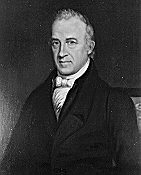Arthur Livermore
| Arthur Livermore | |
|---|---|
 |
|
| Member of the U.S. House of Representatives from New Hampshire's At-Large district |
|
|
In office March 4, 1817 – March 3, 1821 |
|
| Preceded by | Daniel Webster |
| Succeeded by | Thomas Whipple, Jr. |
| Member of the U.S. House of Representatives from New Hampshire's At-Large district |
|
|
In office March 4, 1823 – March 3, 1825 |
|
| Preceded by | Nathaniel Upham |
| Succeeded by | Titus Brown |
| Member of the New Hampshire Senate | |
|
In office 1821–1822 |
|
| Member of the New Hampshire House of Representatives | |
|
In office 1794–1795 |
|
| Personal details | |
| Born |
July 29, 1766 Londonderry, New Hampshire, U.S. |
| Died | July 1, 1853 (aged 86) Campton, New Hampshire, U.S. |
| Resting place | Trinity Churchyard, Holderness, New Hampshire |
| Citizenship | US |
| Political party |
Democratic-Republican Adams-Clay Republican |
| Spouse(s) | Louisa Bliss Livermore |
| Relations |
Samuel Livermore Edward St. Loe Livermore |
| Children | Edward Livermore Samuel Livermore Horace Livermore |
| Profession | Lawyer Politician Judge |
Arthur Livermore (July 29, 1766 – July 1, 1853) was an American politician and a United States Representative from New Hampshire.
Born in Londonderry, New Hampshire, Livermore received classical instruction from his parents and also studied law. Later, he was admitted to the bar and commenced practice in Concord in 1792 and then moved to Chester the following year.
Livermore was a member of the New Hampshire House of Representatives in 1794 and 1795 and the solicitor for Rockingham County 1796-1798. After moving to Holderness in 1798, he became an associate justice of the superior court 1798-1809 and chief justice 1809-1813. He served as a presidential elector on the Federalist ticket in 1800 and as an associate justice of the New Hampshire Supreme Court 1813-1816.
Elected as a Democratic-Republican as United States Representative for New Hampshire to the Fifteenth and Sixteenth Congresses, Livermore served from March 4, 1817 – March 3, 1821. He served as chairman of both the Committee on the Post Office and Post Roads (Fifteenth and Sixteenth Congresses) and the Committee on Expenditures in the Post Office Department (Sixteenth Congress). He was an unsuccessful candidate for reelection in 1822 to the Seventeenth Congress. He served in the New Hampshire Senate in 1821 and 1822, judge of probate for Grafton County in 1822 and 1823.
...
Wikipedia
